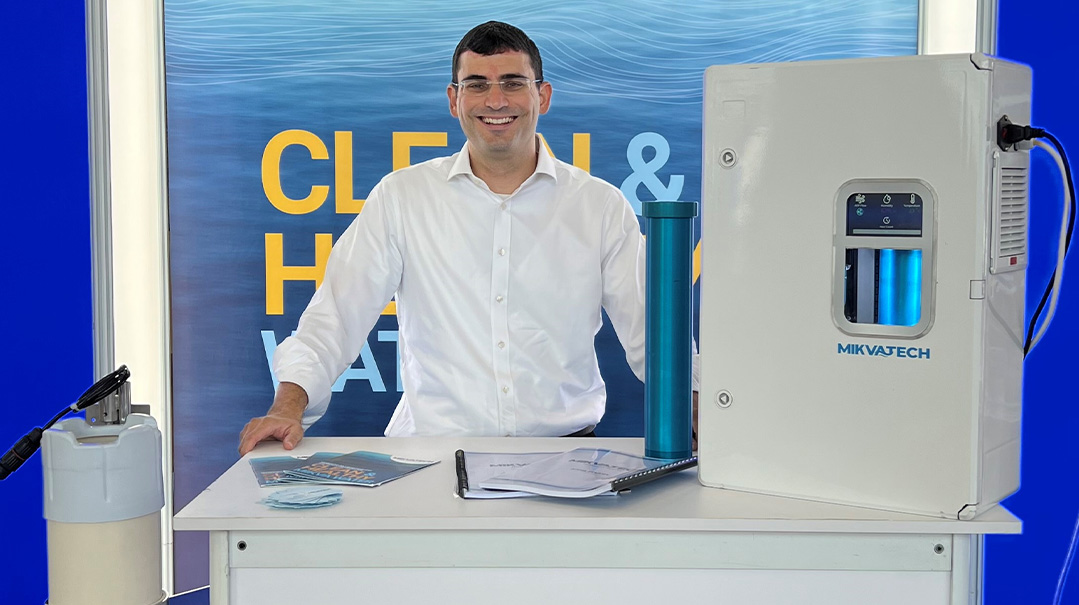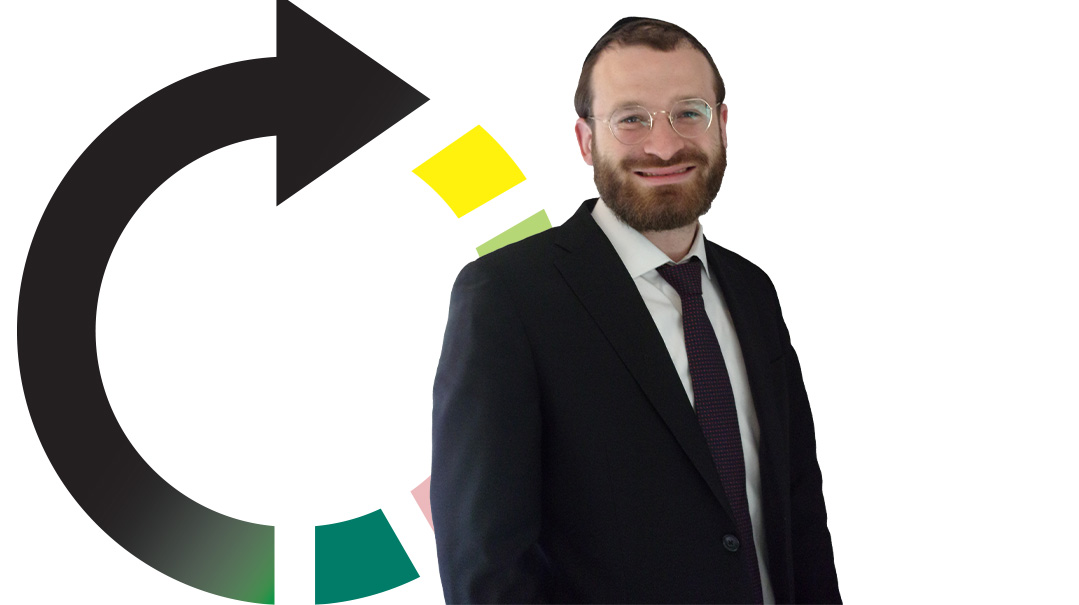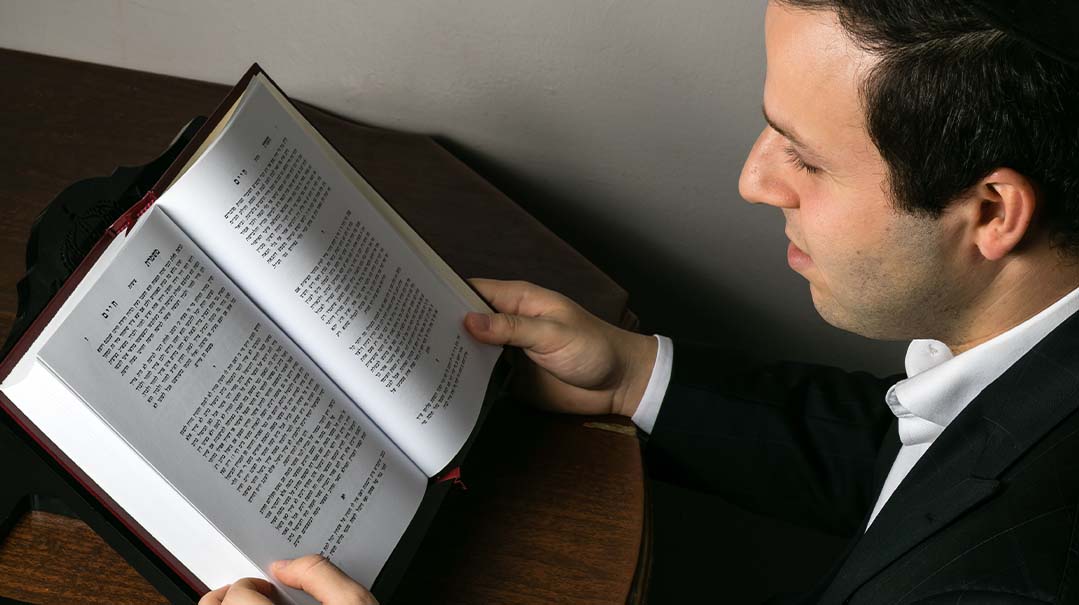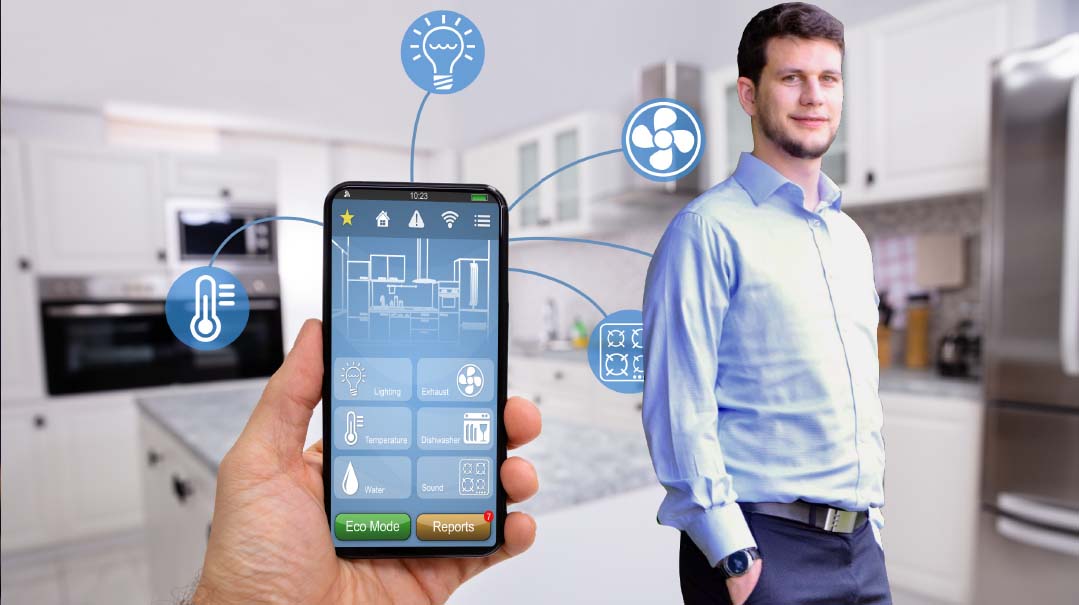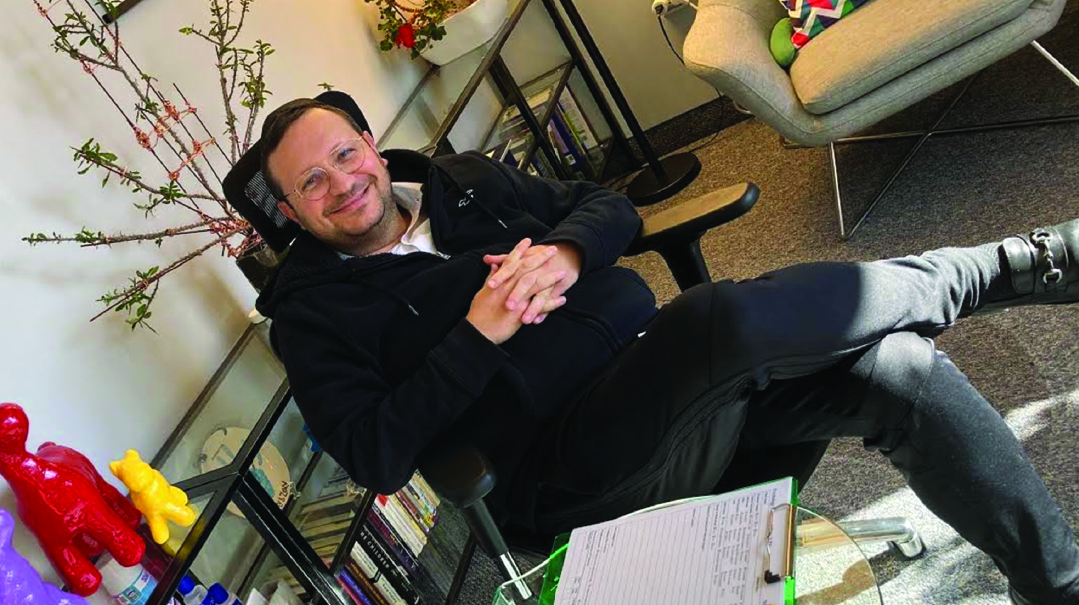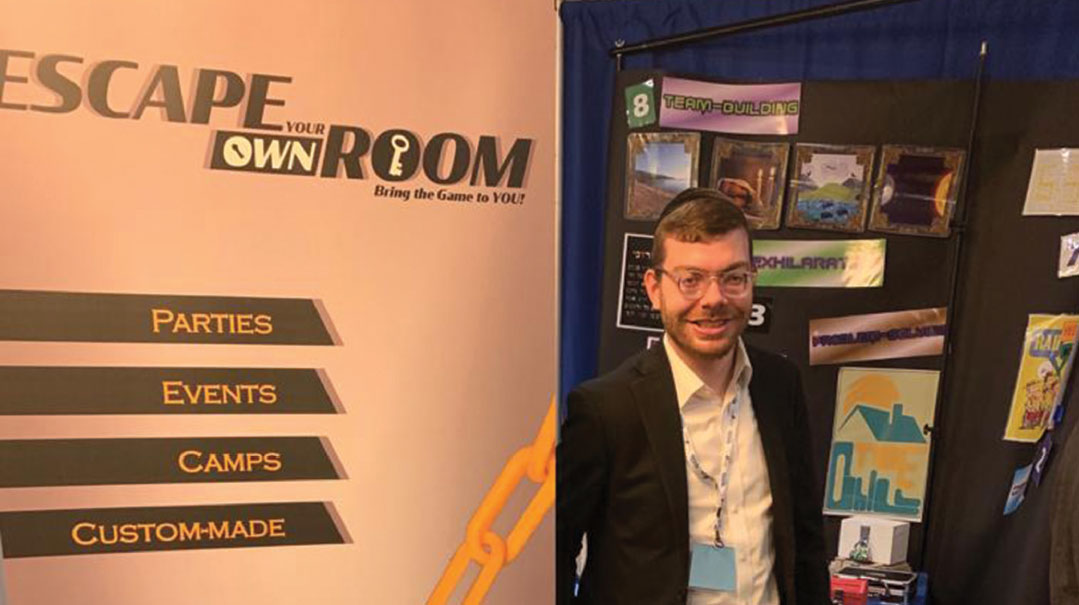Escorting Them Home


R
abbi Rachmiel Rothberger is the Jewish community liaison at Calvary Hospital in the Bronx New York.
What I Do
I serve as a connection between the hospital and its home hospice program and the greater Jewish community. My goal is to help make difficult situations more bearable for patients and their families by promoting the feeling of imo anochi b’tzarah that they’re not alone in their time of need — that they haven’t been abandoned by the Jewish community and that their religious needs are attended to atCalvary.
What That Means
I helped upgrade our Bikur Cholim room from a closet to a fully functioning hospitality suite including on-site Shabbos accommodations for families. We made the building Shabbos friendly and it’s now also included in the community eiruv. I also educate the hospital staff about the sensitivities of the Jewish community — that keeping Shabbos means they likely won’t use the call bells on Shabbos that they set up KosherLamps and so on. Other things too like not to open the double-wrapped and sealed kosher food and not to interrupt a patient who’s davening. I spend a significant amount of time educating families about traditional Jewish funerals and trying to locate plots for patients both before and after they’re niftar. We work very closely with Rabbi Elchonon Zohn — he’s the director of the Chevra Kadisha of the Vaad Harabonim of Queens and the president and founder of the National Association of Chevra Kadisha — and he helped us develop a form that we place in front of every Jewish patient’s chart instructing the staff not to handle the body after the patient dies. When possible I prepare the niftar for the chevra kaddisha or funeral home. I also guide families when it comes to making funeral arrangements —we work with the Hebrew Free Burial Association and have arrangements with local funeral homes to provide a halachic grave and service for financially pressed families. I also serve as a supportive presence for the staff — continuously dealing with dying patients and their families can be devastating.
The Season I Never Sleep
Before and after Shabbos or Yom Tov is especially busy. We make sure our Bikur Cholim room is well stocked because we never know who will be coming in right before. It’s not unusual to receive a call from a family member of a patient in a neighboring hospital who needs food for Shabbos. Motzaei Shabbos I’ve received calls from families whose relatives were niftar on Shabbos and they needed help arranging the levayos and kevuros. I remember the first time the chevra kaddisha called me to help expedite the death certificate of a home hospice program patient so the niftar would be able to make the flight to Eretz Yisrael that night. Baruch Hashem we got everything done on time and since then we’ve worked out a system with the doctors that if a patient is niftar on Shabbos we can have the death certificate right away so the family can make a flight if necessary. There was one patient who was niftar on his son’s Shabbos sheva brachos. To give the family an extra sense of comfort I came into the hospital late at night to sit shemirah and help the chevra kaddisha with the hotza’ah.
Interesting Sh’eilos I’ve Been Asked
Most if not all relate to end of life and we turn to the family’s moreh hora’ah for guidance. I recall a case where the doctor told the family he wants to stop the patient’s IV. We reviewed the chart and medical information with the family’s rav who said it was halachically appropriate to stop IV. The family called in a minyan for Vidui and the patient was niftar shortly afterward. Another time a family wanted to transfer their relative to our facility but he was on dialysis and we don’t provide that. The question was could they stop providing it? I spoke over the issues with the relative and he discussed it with his rav who said it wasn’t appropriate. They kept the patient in the original facility until his doctors said he was no longer able to tolerate dialysis at which point he was transferred toCalvary.
The Toughest Part of the Job
Being surrounded by death all the time. It’s really hard when the family is very close or when we’ve developed a relationship with them over time and especially when the patient is younger — Calvaryis for adults 18 or older and the death of a young adult always hits home emotionally. But the fact that there’s so much death in this field is what gives the greatest satisfaction — when we know we were able to be there for the patient and his family knowing that all of the patient’s needs were taken care of according to halachah and educating families about the spiritual value of taharah and shemirah. It’s all the more rewarding when we’re able to help someone without any family to receive a proper kevuras Yisrael. We feel most fulfilled when we can help a meis mitzvah.
On Training for This Job
You can never fully train for it. It’s a lot of hands-on learning and using seichel and you always have to be prepared to expect the unexpected. How do you train someone to help a family where two mechutanim are hospice care patients? We had that once the family was running between the rooms to see each relative. It was so sad.
My Most Memorable Patient
Rav Zelig Leib Taussig the Toldos Shmuel Rebbe of Givat Shaul — he was the rav of the Toldos Shmuel shul in Yerushalayim. He came to the US to pursue further treatment and was brought to our hospital. I served as an interpreter between the family and staff and the family’s graciousness and kindness made a tremendous impact on the staff. A number of popular Jewish music performers came to play for the Rav and they always included staff and other families. Our executive medical director who isn’t Jewish would visit the Rav regularly — he said he felt a special bond with him and Eretz Yisrael is close to his heart. The Rav and doctor would address each other as “my brother.” On Shabbos they had minyanim here and special seudos over Shabbos. At the end of the Rav’s life we had a minyan at his bedside for Minchah followed by reciting the piskei yichud. Our executive medical director was sitting by the bedside crying. A few hours later the Rav was niftar.
I Wish Everyone Knew
If your relative wants a kevurah in Eretz Yisrael make sure your passport is updated. I remember a patient who died early on a Sunday morning and one of the sons didn’t have a valid passport but wanted to accompany the niftar on the flight. I came in to write a letter requesting an emergency passport for him and baruch Hashem he was able to get on the flight.
Words of Comfort
A young patient who had an eleven-year-old and a six-year-old was declining and her sister-in-law asked me to explain to the children what would happen after she died. I told the boy they would put white clothing on his mother and dress her like a princess who wears a white dress. They would then place her in a special chest like a treasure. I asked “What do you do with a treasure that you want to put away for safekeeping?” The boy answered “You bury it!” To which I responded “That’s what you’ll do. You’ll bury your treasure for safekeeping until the time of Mashiach.” It was a tough conversation but it was so helpful to the children. I continue to use this metaphor to help families. We also discuss how kevurah can be like tucking someone in at night like every parent does for their children.
The Most Touching Scenario I’ve Witnessed
Shortly after I started working in the inpatient hospital here the daf yomi cycle started again. I had started learning daf yomi and it came up in conversation with a family here they said the patient’s son also started attending a daf yomi shiur. I asked him if he’d like to learn a daf together at some point. He was excited about it but it never ended up working out. One evening he said “Let’s learn now.” We sat by his father’s bedside learning the daf Gemara. The next morning the patient was niftar with the special zechus of hearing his son learning the daf yomi.
Why What We Do Matters
There was a patient who was admitted on Erev Rosh Hashanah and with the help of Chesed 24/7 of New Square and Satmar Bikur Cholim we were fully stocked — plus they prepared the patient’s room for Yom Tov with electric candles a Shabbos in a Box kit and a full arrangement of new fruits and simanim. For Succos the family brought succah posters to decorate the room and arba minim were provided for them. At the shivah the daughter told me they were able to just show up to the hospital and give their mother their full attention as every detail for Yom Tov was taken care of. When families are here for Pesach we arrange rooms for a Seder. Matzos and ke’aros are provided courtesy of Rabbi Shlomo Weider of the Rabbinical Union of Observant Judaism in Williamsburg. We have a succah on our terrace and one year a patient spent her last visit with her elderly mother there. I still remember a Kohein who was here who had his last aliyah at Minchah the Shabbos before he died — it was so special for him he was so proud and that last aliyah right before his petirah was such a nechamah for his family.
Best Advice I Ever Received
“Live in the moment.”
(Originally featured in Mishpacha, Issue 621)
Oops! We could not locate your form.
